 LOUISIANA DEPARTMENT OF ENVIRONMENTAL QUALITY | Secretary Aurelia S. Giacometto
LOUISIANA DEPARTMENT OF ENVIRONMENTAL QUALITY | Secretary Aurelia S. Giacometto
 A DEPARTMENT OF THE STATE OF LOUISIANA
A DEPARTMENT OF THE STATE OF LOUISIANA
What You Can Do
Preparing for natural disasters can greatly reduce the risks to health and the environment.
Planning
Recovery
Understanding risks will help speed recovery efforts and help keep problems from becoming worse. Improper use of portable generators or heating devices can release deadly carbon monoxide to indoor air. Ice-melting agents used improperly can pollute waterways. Large amounts of debris can present serious disposal problems for state and local communities. Owners or operators of damaged facilities may be responsible for reporting spills.
Report suspected spills, contamination, or possible violations.
Requirements for Emergency Notification: (LAC 33:I.3915)
For Emergency incidents, as defined in (LAC 33:I.3915), call the Hazardous Material Hotline at (225) 925-6595 as soon as possible within the first hour of the emergency. A call to the DEQ Hotline does not qualify as Emergency incident notification. However, a written notification report by the facility to the DEQ is still required within seven calendar days after the initial reporting to the Louisiana State Police.
Requirements for Non-Emergency Notification: (LAC 33:I.3917)
In the event of an unauthorized discharge that exceeds a reportable quantity specified in Subchapter E of LAC 33:I. Chapter 39 but does not cause an emergency condition, call Hazardous Material Hotline at (225) 925-6595 within 24 hours after learning of the discharge.
Requirements for Notifying the Department: (LAC 33:I.3923)
Permit excursions, exceedances, and any other conditions do not fall under one of the two conditions above can be reported to DEQ Single Point of Contact (SPOC) by one of the three ways below:
Generator Safety
People get sick or die each year from carbon monoxide or "CO" poisoning due to unsafe use of generators.
Three categories of waste facilities defined for solid waste management purposes
Type I Facility—a facility used for disposing of industrial solid wastes (e.g., a landfill, surface impoundment, or landfarm). (If the facility is used for disposing of residential or commercial solid waste, it is also a Type II facility.)
Type II Facility—a facility used for disposing of residential and/or commercial solid waste (e.g., a landfill, surface impoundment, or landfarm). (If the facility is used for disposing of industrial solid waste, it is also a Type I facility.)
Type III Facility—a facility used for disposing or processing of construction/demolition debris or woodwaste, composting organic waste to produce a usable material, or separating recyclable wastes (e.g., a construction/demolition-debris or woodwaste landfill, separation facility, or composting facility).